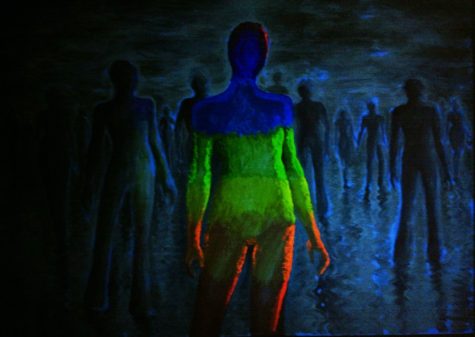Light Deprivation
Light Starvation
“Light is a nutrient much like food,and like food,
the wrong kind can make us ill, and the right kind can keep us well.”
Humans need light of specific intensity and color range to regulate their internal biological clock. Without it, our daily, monthly and annual rhythms become disrupted. A lack of sunlight can lead to ill health with a variety of mental, emotional, and physical symptoms.
How does “light starvation” or “Malillumination” happen?
Working and living indoors: Poorly illuminated environments with inappropriate artificial lighting could have serious health implications. For example, most artificial indoor lighting lacks ultraviolet light (UV), which at the proper intensity is essential to the production of vitamin D and the metabolism of calcium.
Unhealthy artificial light: Most indoor lighting lacks the requisite full-range color distribution and the proper intensity to sustain health and certain functions, such as vitamin D and hormone production. Light’s effect on human mind body health has, until recently, been ignored in architecture, design, and engineering. Both fluorescent and incandescent lights have lots of Red, but are lacking in Green, Blue and Violet. Furthermore, indoor lighting is generally not bright enough, amounting to only 1/20th the intensity of outdoor light in the shade on a sunny day. The amount of light that we receive from 16 hours indoors is dramatically less than the amount we receive from a single hour outdoors.
Negative lifestyle habits: Even in sunny California and Florida, the average individual receives little sunlight in a 24-hour period. The additional interferences we have, such as tinted sunglasses and contact lenses, tinted car windshields, and tinted windows, don’t allow in the health-giving properties of the entire spectrum of light.
Seasons/low light conditions: In winter in the northern hemisphere, the onset of winter depression and seasonal affective disorder (S.A.D.) occurs in late fall and peaks in February. (These symptoms usually wane in early spring, as the days get longer.)
The Symptoms of Light Starvation:
- Irritability
- Fatigue Increased illness – due to lowered immune function
- Insomnia
- Hypersomnia – sleeping too much
- Depression
- Alcoholism
- Suicide
- Vitamin D deficiency
- Calcium deficiency
- A disturbance of bodily rhythms such as SAD, winter depression and other phase shift disorders.
What Light Nourishes:
Light enables us to see, and it plays several vital roles as it enters our eyes and our skin. Light enters the pineal gland (the body’s light meter) via the retina. Its neurotransmitter, melatonin, influences the hypothalamus, which is responsible for controlling many of the endocrine functions that are disturbed in depressed individuals such as sleep and wakefulness, reproductive physiology, mood, and the timing of the biological clock.
Sunlight shining on the skin triggers the production of melanin, a dark pigment that protects the surface of the body. As UV rays from the sun penetrate the skin’s surface layer of melanin, the body’s supply of vitamin D is replenished. Vitamin D is known as the “sunshine vitamin”, and although vitamin D can be obtained from milk and fish, this form is not as biologically effective as the vitamin D produced by sunlight.
Vitamin D3 is a skin hormone called solitrol, which works in conjunction with the pineal hormone, melatonin, to control the body’s response to light and darkness. Solitrol works antagonistically with the melatonin to produce changes in mood and our 24 hour bodily rhythms, as well as affecting our immune system.
Vitamin D enters the blood stream and goes to the kidneys and liver where it plays a key role in the absorption of calcium from foods, as well as the utilization of the mineral phosphorus. Nutritionally oriented physician Dr. Elson Haas states that since vitamin D is intimately related to the metabolism of calcium and phosphorus, it is important to the growth and development of bones and teeth in children. Dr. Haas adds that D3, because of its effect on calcium levels, is important in the maintenance of the nervous system, heart functioning, and blood clotting.


